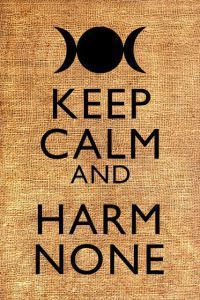Jim Palmer's Blog, page 28
July 7, 2014
Dear Jim, Are you apostate?
(I received the following Facebook message last night.)
“Hey Jim. Of all the things you have been called, can you remember one of them being an “apostate”? I was talking with a friend who insists you have left your core faith behind, salvation through Christ, to embrace a more universalist view. Any light you can shed on this? Just wondering.”
*
Yes, I have certainly been called apostate… as well as heretic, reprobate, demonic… and many more things I don’t care to mention here. What I did was leave the core teachings of the Christian religion, which I ultimately discovered were incompatible with the life and teachings of Jesus. The central truth of Jesus is that God and humankind are not separated but one. I don’t think you can get anymore “universalist” than that. God loves all humankind… universally. God and humankind are inseparable… universally. The truth of Jesus applies to everyone… universally. What I’m trying to say is that Jesus was an apostate, heretic, reprobate, and universalist himself, and so I wear all those labels proudly.


July 6, 2014
Now that you have shed religion, what is the point of the Bible?
Every human being is an expression or manifestation of the image, likeness, and being of God. At the most fundamental level we are one with God. Our true and underlying Self is whole, complete, free, at peace, enlightened, and well. That Self is never threatened, and cannot be improved or diminished. There is nothing for that Self to gain or attain. That Self knows the truth. That Self is the truth. That Self was clothed with human personhood for the purpose of realizing and expressing the reality of God and humankind as one. Admittedly, this purpose can be a little tricky and isn’t for the faint of heart. We are never separated from the truth, and therefore there is the possibility in any moment for each of us to realize, know, and be the truth. The only thing that ever interrupts our experience of the truth is our lack of awareness.
If this is true, then what is the point of the Bible? In my view, the Bible tells the story of humankind’s relationship to and with God. The Bible opens with a picture of God and humankind as one, and then the story takes a turn with the coming of spiritual ignorance into the world. The story continues with humankind trying to hash things out through religion. At times that story is beautiful, and at other times it’s ugly. We discover in the story that humans can be inspired by their beliefs in God to love each other, and at other times to rationalize about anything, including killing people in the name of “God’s will.” That’s all part of the story. We still do this today. Jesus shows up in the context of his people, his day, his times, and his religious tradition. His central claim was, “I am the truth,” which was meant to abolish the false notion of separation from God, and to unveil the long forgotten reality that God and humankind are one. Jesus taught that this truth was the secret to unfurling the kingdom of God on earth.
Jesus taught it was necessary for him to leave the earth in body so that his followers would not create a personality cult around him, but instead learn to listen and follow the same spirit within them. But as the story goes and as human nature goes, some of the earliest Christ followers organized themselves according to the same mentalities of their previous religious orientation. The bulk of the New Testament is essentially a set of letters written by a few of the most prominent early Christians, addressing various issues that came up as different Christian groups tried to work out their devotion to Jesus in the context of their times. Some times this was done beautifully, and at other times it was a train wreck. But it’s all part of the story.
It’s my own view that the Bible has tremendous value for any person’s spiritual journey, depending on how you take it.


July 3, 2014
This much we know (about Jesus)
Let’s start with some basic things what we do know with some certainty…
There is no serious doubt among contemporary historians regardless of their religious faith that Jesus was a real person who lived in Palestine in the First Century. We know that he was an itinerant teacher who traveled and taught throughout Palestine and who gathered disciples around him through the force of his personality and the compelling nature of his message. He was viewed by the Romans who occupied Palestine in those days as a religious radical and a disturber of the peace. He was arrested by Temple police and was finally executed by the Romans in the fashion of his day by public crucifixion.
Immediately after Jesus was arrested and executed his disciples were initially discouraged, disappointed and frightened. They feared for their safety as they contemplated the fact that they too might be arrested and killed. They abandoned Jesus to his fate and ran.
However some time shortly after his death the crushing sense of disappointment, frustration and defeat that his disciples experienced at the death of their leader suddenly gave way in the face of what we term the Easter Event – the life-transforming conviction that Jesus was alive in them.The Easter Event meant a radical transformation of their lives and commitments.
It is clear that the disciples had a resurrection experience through which their lives acquired a new meaning and importance. They interpreted this life-transforming experience as new life or a rebirth. This new life came with a sense of freedom that reoriented their priorities from things that were inconsequential to a new way of thinking about what was seriously important. They understood this to mean two things: they were to model their lives in the spirit of his life, and they were to carry on his teaching ministry about the kingdom of God and its implications for their situation. This new life demanded their commitment to continue the ministry of Jesus and to do so fearlessly and courageously.


July 2, 2014
Can you be Christian and Pagan?
The nature of the monotheistic religions is to encode us with the idea that individualism is of utmost importance. Think of the Christian religion, and its focus on individual salvation. Meanwhile, these religions categorically condemn anddismiss any form of “paganism” – ideologies that integrally relate us to the earth.
“Paganism” is yet another term that religion demonizes and scares people away from. You might be surprised to find that some of the central values of paganism include:
1. Love for and Kinship with Nature. Reverence for the life force and its ever-renewing cycles of life and death.
2. A positive morality, in which the individual is responsible for the discovery and development of their true nature in harmony with the outer world and community. This is often expressed as ‘Do what you will, as long as it harms none’.
3. Recognition of the Divine, which transcends gender, acknowledging both the female and male aspect of Deity.
If you do some more digging around you will also find that paganism teaches:
1. Responsibility of Beliefs
The most basic tenant of paganism is that it is your own responsibility, not the responsibility of any government, institution, church or other people, to choose what you believe in regards to spirituality, values, ethics, the nature of Divinity, etc.
2. Personal Responsibility for Your Actions and Personal Development
The development of your personal beliefs, morals and ethics is your own responsibility. The belief that we are products of our own environment does not stand within the pagan structure, as paganism teaches that it is the responsibility of each individual to learn to recognize what is right from wrong, regardless of our early environment.
3. Everything is Sacred
Most pagan religions believe that everything in the universe is sacred, but the definition and level of sacredness applied to an object will generally vary from one pagan to another. For some pagans, all parts of our universe are considered divine and as such, sacred and worthy of our deepest respect.
There is nothing in the above values and principles of paganism that are inconsistent with the message and teachings of Jesus.
So, do you see what I mean? Many people learned through religious indoctrination that “paganism” is the equivalent of satanism. That’s what happens when we don’t question what we’ve been told, think for ourselves, or take responsibility to educate ourselves.


The unmapped territory of universal higher consciousness (yeah, that!)
Along the way it’s likely that you have run into terms and concepts like “higher consciousness,” “universal consciousness,” or “collective consciousness.”
In general, the idea of a “universal higher consciousness” is that there is a nonlocal and atemporal source of being… source of awareness… source of perception… through and in which we have:
an unmediated and direct experience of the way things really are;
an unmediated and direct experience of ultimate truth;
an unmediated and direct experience of the oneness of all things;
an unmediated and direct experience of all things being whole, complete, harmonious and well;
an unmediated and direct experience of no separation.
Inside the reality of “universal higher consciousness” there is the dissolution of all spiritual ignorance, and there is only the light of what is real and true. Some refer to this “universal higher consciousness” as “God.” Others see the references of Jesus to the “kingdom of God” as this “universal higher consciousness.”
In my writings I often refer to our “true Self.” In the above terms, that Self dwells in and is an expression of that “universal higher consciousness.” When Jesus said, “I am the truth,” you might understanding Jesus to be saying that “universal higher consciousness” was united with the elements of human personhood in order to have a human experience, and that the point is to create our human experience out of that consciousness. In other words, we were born “out of the image of God” as creators, and we are here to create our world from that “universal higher consciousness” (“on earth as it is in heaven”).
You could deconstruct terms and concepts such as “higher consciousness,” “universal consciousness,” or “collective consciousness,” and explore their original meanings/usages by studying people like Anaxagoras, Hegel, or Durkheim, but these terms have now evolved and taken on new meanings in the spiritual context. Quantum Physics has also added a scientific dimension, foundation, and validation to these concepts.
For many people coming out of religion, this may be unmapped territory, and perhaps you were even scared away from such terms because you were told they were “New Age,” “demonic,” and who knows what else. Religion tends to be very effective at controlling and limiting people’s spiritual freedom and evolution through fear tactics. All the above terms and words are not “new.” For example, pre-Socratic philosopher Anaxagoras delved into these concepts, as well as philosophers like Hegel and Durkheim (and many others).
Anywho, feel free to share what you are discovering about these ideas and realities in your own spiritual growth and evolution.


June 30, 2014
Life is not a warm-up for Heaven (and Jesus doesn’t want to be your idol)
God is not a belief system, and Jesus is not a religion.
Life is not a warm-up for Heaven, and the world is not without hope.
Seeing the divine in all things is not heretical, and self-actualization is not self-worship.
“Sinner” is not our identity, and our humanity is not the enemy.
Peace is not a circumstance, and grace has no exceptions.
Christianity made an idol out of Jesus and worship him, but Jesus simply desires our embracing, expressing, living, and being the truth.


June 25, 2014
5 things to do if you are bored with incessant theological discussion
5 things you can do if you are weary or bored with incessant theological discussion or more or less re-hashing the same God stuff over and over and over again:
1. Educate yourself
Why not explore a new area of interest or curiosity? Coursera (coursera.org) is one of many education platforms that partners with top universities and organizations worldwide, to offer courses online for anyone to take, for free. Classes are offered in about every subject imaginable in the sciences, humanities, arts, technology, health, computer science, etc.
2. Express yourself
Throw caution to the wind and explore a new form of creative or artistic expression. Sketching, painting, Haiku poetry, photography, collage, writing, cooking, woodworking, film/video, music, theater, dance, digital art, gardening, landscaping, craft design, sculpture, etc. – choose some form of artistic or creative expression that interests you, and start dabbling, exploring and experimenting. Have fun with it!
3. Challenge yourself
Every day men and women in their 30′s, 40′s, 50′s, 60′s, 70′s… are challenging themselves to be more fit and healthy, or achieve a goal like running a marathon, completing a triathlon, hiking a mountain, or cycling across their state or country. Doesn’t watching the World Cup inspire you to want to do some sport that is competitive and fun? Joining an adult sports league, finding a tennis or golf partner, or attending yoga, dance or taekwondo classes are all possibilities. Set a personal fitness goal. Start walking, strength training, swimming or whatever resonates with or inspires you.
4. Volunteer yourself
Do some research and find out what needs currently exist in your community or city that you would be inspired and skilled to meet. It could be a need nearby that you could directly respond to…a single mom down the street who could use a break, a senior who would enjoy some conversation, or being the welcome wagon for the new Indian family who moved in downstairs. Maybe it’s just reaching out to a neighbor in need or performing random acts of kindness. Perhaps there is an organized community effort of interest such as a food bank, homeless shelter, English tutoring effort, child mentoring program, or community beautification project. Volunteer at the local animal shelter, rescue group, or humane society. Help build a home with Habitat for Humanity. Contact your local United Way, Red Cross, or Salvation Army for discovering new service opportunities in your area. Where in life are you inspired to be a tangible expression of love, help, kindness, and compassion?
5. Enjoy yourself
Many people learned through their religious involvement that enjoying oneself is selfish, even sinful. Time to cast off the guilt, and allow yourself to do things for no reason other than pure enjoyment, delight, pleasure, and satisfaction. What is that for you? Perhaps you don’t even know. Well, it’s time to get busy figuring it out! What makes you come alive? What satisfies you most deeply? What fills you up? What brings you joy? What centers you? What is a source of delight and pleasure for you? What makes you feel connected to yourself? What would your sense of adventure tell you to do? What makes you happy? What restores you? What do you enjoy doing? What feels good? Yeah, do that! Maybe it time’s to get re-connected with the earth. Get your hands dirty. Walk that trail. Swim that lake. Enjoy a sunset. Light those candles and listen to your music. Read that series of novels. Grab your honey and go do something different and fun together. Enjoy yourself!


June 22, 2014
Being human is divine
It seems people often think that our humanity is our Achilles Heal, and if we could minimize our “human side” and maximize our “divine side” than all would be well. Our fundamental Self is part of God. What God is, is the underlying nature and essence of who we are. God’s being is the ground of our being. Our divine Self took on human personhood. That Self took on a human mind and body for a human journey. The point of all this is not to become less human, but to explore the furthest frontiers of what it means to be human, given our true identity.
Sometimes religion gets us on this path of basically packing it in and waiting till heaven. Meanwhile, Jesus said the Kingdom of God is here now. Don’t pack it in yet! Start living! You are not limited to the person you have become. Don’t stop pushing, exploring, and stretching into the fullness of what it means to be you. Don’t get bogged down with trying to live a “religious life,” get more interested in living your human life. This is what I mean by the phrase, “Life is my religion.”
I often find it difficult convincing people that being human is not bad, and doing human things is not inferior to some sort of spiritualized existence. You’re supposed to be getting your hands dirty and mud on your face, being human. You’re supposed to be honoring and fulfilling your passions, dreams, interests, curiosities, desires, new possibilities and horizons, and inspirations. Being human is not a sub-par existence as a warm-up for Heaven. Jesus said, “I am the truth.” What is that truth? God and humankind… God and you… God and life… right now as one.


June 21, 2014
Being a grown adult, the Jesus/Buddha debate, and the need to stop analyzing everything.
Below are my thoughts on a few different conversations I’ve had going this past week…
As a grown adult, you have the right and responsibility to follow your own spiritual path, and the right and responsibility to guide and encourage your children in their spiritual formation. It is not your job to satisfy the expectations of your parents in this regard. You don’t need their validation or approval in this matter. You are an adult, and you may live your life and parent your children as you see fit. I say this because I hear from many people that they find it difficult to follow their path when it involves the judgment, criticism, and disapproval of their parents. I know these situations can be complex and difficult, and each case is different. Keep in mind that you may never have the approval and validation from the people you most wish would offer it. In some cases it is necessary to establish boundaries in order to protect your own well-being from the toxicity of others, including family relationships. Of course these situations are unfortunate, but you cannot live your life trying to gain or maintain the approval of others, or hiding and repressing yourself to accommodate others. You are free to take responsibility and ownership of your own life without coercion or harassment, whoever it might be.
*
Too often religion makes the rules, and we still follow them. For example, there is the rule: Thou Shall Only Be One Correct Religion. This false premise pits religions and spiritual leaders against each other. Therefore a person is told that they can follow Jesus OR Buddha, but not Jesus AND Buddha. Jesus and Buddha are not rivals or adversaries. What Jesus addressed in his life and teachings is different from what the Buddha addressed. It’s a little like comparing apples and oranges. Sometimes religious folks will label this view as “syncretism,” which it isn’t. Syncretism is merging together different and distinct religious traditions or spiritual paths into one system, which essentially dilutes…. sort of like spirituality by committee. Jesus taught and addressed different things than the Buddha did. It’s not a matter of merging them together into one deal; it’s a matter of recognizing they are distinct but not in a way that pits them against one another.
*
Consider the possibility that the way you might work through something that seems to be holding you back may not be by pouring yourself into an exhaustive and never-ending analysis that includes reading every website and book ever written about it. On the one hand, it’s useful and wise to add knowledge about something where you currently lack understanding. So far, so good. But be aware of becoming so absorbed in the analysis that you actually enlarge it in ways that are counterproductive. For example, perhaps you feel you struggle from low self-worth. So you read every website and book known to humankind about low self-worth… which only arms you with more ammunition to disparage yourself because you’re not measuring up to what all the stuff says about how you could/should have better self-worth. You start judging yourself by all the stuff you now know. You then become more convinced it’s a problem, more aware of your low self-worth, more feelings of failure and shame… and the hole just gets deeper and deeper until your whole life is a losing cause against low self-worth. In other words, in some cases we turn a squirrel into a fire-breathing dragon. Add the knowledge and understanding that is useful, and then return to your regularly-scheduled life and live it. Practice what you’ve learned, but be careful of making the analysis of your challenges into a personal hobby or even your identity.


June 18, 2014
Why the “Gospel” can’t save you.
“Sin,” “repent,” and “eternal life” are among the top words and phrases that have taken on a meaning in pop-Christianity that Jesus would have never endorsed or taught. It just underscores the power of groupthink – that if enough people believe something, they will reason that it must be correct.
What is our crime that separates us from God? As the pop-Christian theory goes, our crime is being human. We are told that we are born “sinners.” Insert the misinterpretation of the word “sin.” According to the theory, before we do anything… we are born as babies “in sin.” In other words, we don’t get a choice; by virtue of being born human, we are at the core, “sinners.” The theory further says that this state is disgusting and revolting to God, which is why God rejects and condemns us, has nothing to do with us, and sends us to Hell… we are separated from God.
However, the word “sin” means to miss the mark or fall short. What mark? Fall short of what? Sin is falling short or missing the mark of realizing, accepting, being and giving expression to the complete and whole people God made us to be. Of course God “hates sin” – God hates anything in our lives that prevents us from knowing and experiencing our true nature, which is an extension and expression of the image, likeness and being of God. And God hates anything that prevents us from embracing the freedom, goodness, beauty, peace and freedom intended for all humankind. I love my daughter Jessica. I passionately desire her to know love, goodness, beauty, peace, freedom, wholeness and well-being. It’s heartbreaking to see any way she is not experiencing these, and I want to remove any obstacle in her life that would be preventing it.
Next, pop-Christianity inserts a misinterpretation of the word, “repent.” In the religious context, “repent” usually means acknowledging and grieving your sinful condition, turning from your wicked ways, throwing yourself on the mercy of God, and pledging to do better… or else! “Repent” is one of those religious words that conjure up images of judgment, condemnation, and fear.
Jesus often said in the gospels, “Repent, for the kingdom of heaven is near.” For years it troubled me that Jesus so often used this word because it represented everything that repelled me about religion. But then I learned its true meaning and significance. I discovered that the word “repent” (metanoia) actually means a change of mind or having a new mind. The word suggests a radical transformation of how we process reality.
Metanoia literally means “beyond the mind.” It’s the idea of stretching or pushing beyond the boundaries with which we normally think and feel. It often involves pressing beyond our religious conditioning about ourselves, God, others and life itself. When Jesus said, “Repent, for the kingdom of heaven is near,” he was saying that peace, freedom, fulfillment, and wholeness is present in every moment but it can’t be accessed or grasped through the religious mentality. “Repentance” as a way of life would mean acknowledging that what you most deeply want in life lies beyond what you already know or think you know. It involves approaching life from a place of “not knowing” and becoming more grounded in that inner voice that woos you toward what is truly good, beautiful, and liberating.
The pop-Christian gospel is then capped off with the promise of “eternal life,” which is normally associated with life after death or Heaven. This, despite the fact that Jesus described “eternal life” as the life of God that is continuously and unconditionally available to us, in us, for us, as us, and through us… in every present moment.
These ideas of sin, repentance and eternal life became the modern “gospel,” along with a host of other doctrines. They were conveniently labeled “orthodoxy,” implying that you could not even be a “Christian” unless you signed off on this doctrinal litmus test, which Jesus himself would not have supported. Just a cursory reading of church history raises some suspicion of how this popular Christian “orthodoxy” came into existence.
One of the biggest mistaken notions I carried around for years was that somehow Jesus Christ and Christianity were more of less the same thing or interchangeable. It makes sense; the Christian religion bears his name. It just seemed to go without saying – Jesus was in support of Christianity, and Christianity was in support of Jesus. It wasn’t until mush later that I learned that sometimes Jesus and Christianity can be two totally different and irreconcilable things.















